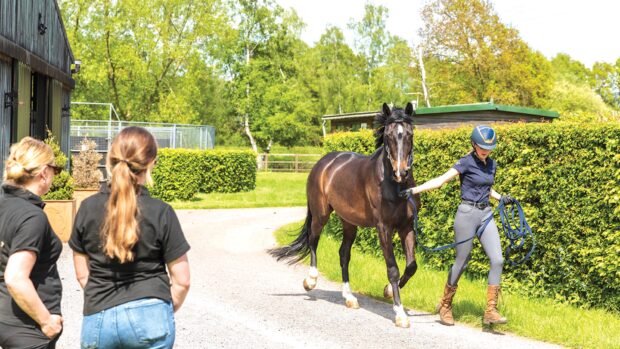Q: I am a horse dealer and give a 28-day warranty to allow purchasers time to try a horse. I sold one and three months later the new owner demanded her money back, as the horse has kissing spines.
The horse had passed a five-stage pre-purchase vetting and I feel that, by taking the horse back, I will look guilty and it will affect my reputation.
RA, Lincolnshire
A: The symptoms of kissing spines can be subtle,so it can be difficult to diagnose.
The five-stage pre-purchase vetting is there to allow the vet to offer his opinion on whether the horse is likely to be fit for purpose at the time of examination, rather than excluding all possible abnormal conditions that might be present.
Therefore, if a horse did not show any back problems under saddle or during the vet’s examinations, prompting further X-rays and nerve-block type tests, the horse would quite likely have been assessed as “suitable for intended use’.
“A number of conditions are difficult to identify and asymptomatic abnormalities such as kissing spines are problems that can be present at the time of examination, but still undetectable without recourse to further testing [such as X-rays],’ said vet Deborah Pett MRCVS of Cinder Hill Equine Veterinary Clinic in Sussex.
“Anyone purchasing a horse must accept a degree of risk.”
In terms of the Sale of Goods Act (SGA): “When a horse is sold as part of a trade or business, the SGA 1979 (as amended) will imply certain terms into the contract for sale,” explained Stuart Farr of Laytons Solicitors.
“The most common terms relate to the description applied to the animal – that it should be fit for its purpose, and that the horse should be of satisfactory quality.”
Provided the person buying a horse can establish that a seller has breached a term implied by the SGA, they may be entitled to reject the horse and request a refund. However, they must complain within a “reasonable time”.
“What constitutes a reasonable time depends on the circumstances of each case,” said Stuart. “Nevertheless, where a full pre-purchase vetting is carried out and a warranty is given, there would appear to be strong grounds for arguing that a four-week period is sufficient for the buyer to reject the horse and request a refund. Anything beyond that would suggest that the problem being complained of was not present at the time of sale.
“This might depend on the nature of problem with the animal. In most circumstances, however, taking three months to complain would be too long, and would not entitle a buyer to reject the sale and demand their money back.”
Information
Cinder Hill Equine Veterinary Clinic www.cinderhillequinevets.co.uk
Laytons Solicitors, tel: 0161 834 2100 www.laytons.com
This Q&A was first published in Horse & Hound (2 April, ’09)



